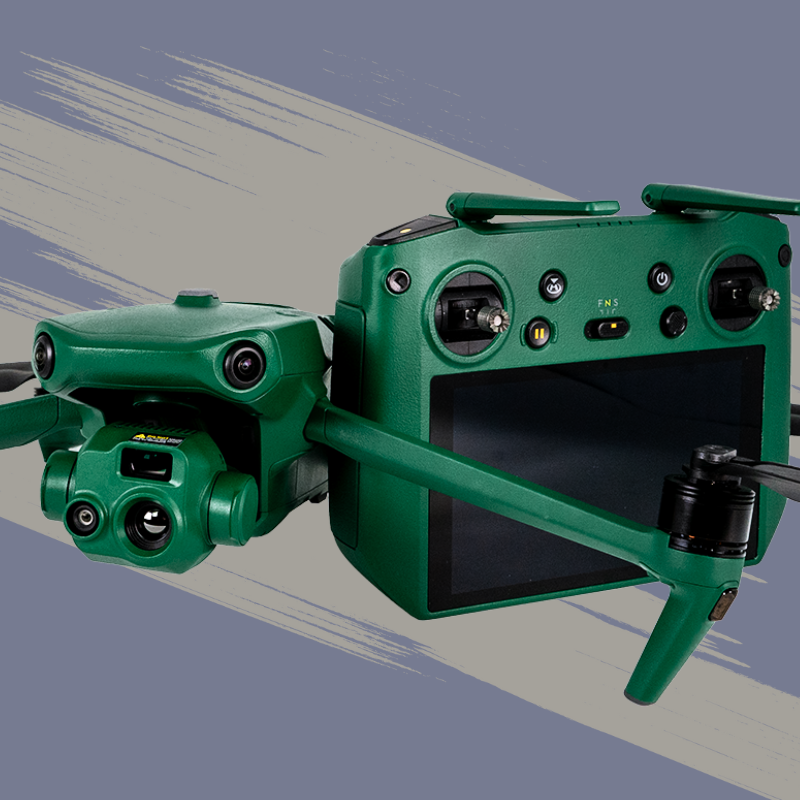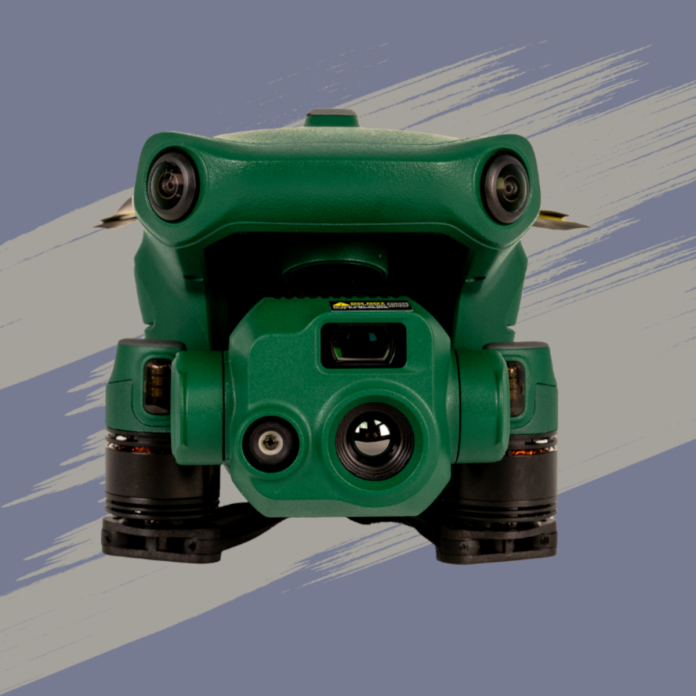The “Countering CCP Drones Act” (H.R. 2864) has stirred significant controversy and concern within the drone community and beyond. As it progresses through the US House of Representatives, its potential impact on Shenzhen DaJiang Innovations Sciences and Technologies Company Limited (DJI) and the broader drone industry is becoming a focal point for discussion. This legislation, along with H.R. 820 (the “Foreign Adversary Communications Transparency Act”), reflects heightened geopolitical tensions and raises critical questions about the future of drone technology in the US.
Understanding the Countering CCP Drones Act
The “Countering CCP Drones Act” specifically targets DJI, a leading player in the global drone market. The bill aims to address national security and cybersecurity concerns, but many argue that the underlying motivation is the broader geopolitical rivalry between the US and China. By including DJI and its subsidiaries or affiliates, the legislation seeks to curtail the influence of Chinese technology companies in the US.
The Geopolitical Context Behind the Legislation
The increasing friction between the US and China is not limited to trade disputes or military posturing. It extends into technology, where control over critical infrastructure and data is seen as a strategic asset. The targeting of DJI by the “Countering CCP Drones Act” and H.R. 820 underscores this reality. Proponents of the bill argue that DJI drones could be used for espionage or other malicious activities, although concrete evidence for such claims remains a point of contention.

Potential Impact on DJI and Its Users
If passed, the “Countering CCP Drones Act” could lead to a ban on the sale and operation of DJI drones in the US. This would not only affect future sales but could also retroactively ground existing drones by revoking their FCC approvals. Such a move would have significant repercussions for both consumer and industrial drone users who rely on DJI’s technology for various applications, from photography to agriculture to infrastructure inspection.
Anzu Robotics: A New Player in the Drone Industry
In response to the potential ban on DJI, Randall Warnas, a veteran of the drone industry, launched Anzu Robotics in April 2024. Anzu’s first two models, the Raptor and Raptor T, bear a striking resemblance to DJI’s Mavic 3 Enterprise and Mavic 3 Enterprise Thermal. This similarity is due to Anzu’s strategy of licensing DJI’s hardware technology while developing its own software in collaboration with Aloft, a US-based firm.
Anzu’s Licensing Agreement with DJI
Anzu Robotics has taken a unique approach by licensing hardware technology from DJI. This allows Anzu to offer drones with familiar hardware but combined with proprietary software developed in the US. This strategy aims to provide a solution for users who might be affected by a DJI ban, ensuring continuity in their operations without compromising on quality or functionality.
Penetration Testing and Security Measures
Anzu has been proactive in addressing security concerns by engaging a third-party penetration testing firm to rigorously test its software. According to Randall Warnas, Anzu is committed to finding and fixing any vulnerabilities rather than hiding them. This transparency is crucial in building trust with users and regulatory bodies, particularly in a climate where security concerns are paramount.
The Market Position of Anzu Drones
While Anzu’s drones are not positioned as direct consumer products, they fill a critical gap for government entities and commercial users. Priced between $1,500 and $2,000 more than their DJI counterparts, these drones offer a viable alternative for those who need reliable, secure drone technology in the face of potential regulatory changes.
The Future of Consumer Drones
Despite the promise shown by Anzu Robotics, Randall Warnas has indicated that the company does not intend to venture into the consumer drone market in the near future. This leaves a significant segment of the market—enthusiasts and hobbyists—still seeking solutions if a ban on DJI comes into effect. The future of consumer drones in the US remains uncertain, hinging on the outcomes of these legislative efforts.
Broader Implications for the Drone Industry
The “Countering CCP Drones Act” could set a precedent for how the US handles foreign technology companies, particularly those from China. The drone industry is just one of many sectors that could be affected by similar legislative measures. The potential grounding of DJI drones highlights the need for a robust and diverse ecosystem of drone manufacturers and technology providers to ensure resilience against geopolitical shifts.
Industry Response and Advocacy
The drone community has been vocal in its response to the proposed legislation. Many industry stakeholders, including users, manufacturers, and advocacy groups, are pushing back against what they see as overly broad and potentially damaging measures. The argument is that while security concerns are valid, they should be addressed with targeted, evidence-based actions rather than sweeping bans.
Navigating the Regulatory Landscape
For drone operators and businesses, navigating the evolving regulatory landscape will be crucial. Staying informed about legislative developments and understanding the implications of new laws will help mitigate risks and adapt to changes. Engaging with industry groups and participating in advocacy efforts can also play a role in shaping policies that balance security with innovation and economic growth.
Preparing for a DJI Ban
Drone users and businesses that rely on DJI technology should consider contingency plans in case the “Countering CCP Drones Act” becomes law. This might include exploring alternative drone manufacturers, investing in new technology, and staying updated on the latest developments from companies like Anzu Robotics. Proactive planning can help minimize disruption and ensure continuity in operations.
Conclusion: A Pivotal Moment for the Drone Industry
The “Countering CCP Drones Act” represents a pivotal moment for the drone industry in the US. As the legislation progresses, its impact on DJI, the broader market, and the geopolitical landscape will be closely watched. Companies like Anzu Robotics offer a glimpse of potential solutions, but the road ahead will require careful navigation, advocacy, and adaptation to ensure a vibrant and secure future for drone technology.
The coming weeks and months will be critical as stakeholders await the outcome of the legislative process. Whether the US drone industry can adapt and thrive in the face of these challenges will depend on the collective efforts of manufacturers, users, and policymakers working together to find balanced solutions that address security concerns without stifling innovation.





































